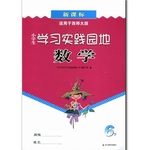题目内容
Making mistakes is a part of life. ___________ matters is ___________ you do afterwards.
| A.It; what | B.All; what | C.What; what | D.That; what |
C
解析试题分析:考察名词性从句。本题第一空what matters是一个主语从句,what在句中作主语。第二空是一个表语从句,what引导起这个表语从句,并在句中作动词do的宾语。句意:犯错是生活的一部分。重要的事情是犯错以后你所做的事情。That引导名词性从句,在句中不充当任何成分,只起引导和连接作用。故C正确。
考点:考察名词性从句
点评:名词性从句要使用陈述语序。同时考查集中在引导词的选择上,连接词that, whether, if在句中不充当任何成分,只起连接作用;连接代词who(ever), which(ever), whom(ever),whose(ever),what(ever)在句中做主语,宾语,表语和定语;连接副词when, why, where, how,在句中做状语。应从上下句的句法关系着手分析,切不可‘望句形生答案’总的来说,考生在解答此类题型时,可用排除法,造句法或者还原法,造句法就是仿造原句的语法功能仿造出一个易懂易理解的句子,帮助判断。

 学习实践园地系列答案
学习实践园地系列答案I shall never forget the night, a few years ago, when Marion J. Douglas was a student in one of my adult-education classes. He told us how tragedy had struck at his home, not once, but twice. The first time he had lost his five-year-old daughter. He and his wife thought they couldn’t bear that first loss; but, as he said, “Ten months later, God gave us another little girl and she died in five days.”
This double bereavement was almost too much to bear. “I couldn’t take it,” this father told us. “I couldn’t sleep, eat, rest or relax. My nerves were entirely shaken and my confidence gone.” At last he went to the doctors: one recommended sleeping pills and another recommended a trip, but neither helped. He said, “My body felt as if it was surrounded in a vice(大钳子), and the jaws of the vice were being drawn tighter and tighter.” The tension of grief(悲伤) --- if you have ever been paralyzed(使瘫痪) by sorrow, you know what the meant.
“But thank God, I had one child left --- a four-year-old son. He gave me the solution to the problem. One afternoon as I sat around feeling sorry for myself, he asked, ‘Daddy, will you build a boat for me?’ I was in no mood to build a boat; in fact, I was in no mood to do anything. But my son is a persistent fellow! I had to give in. Building that toy boat took me about three hours. By the time it was finished, I realized that those three hours spent building that boat were first hours of mental relaxation and peace that I had had in months! I realized that it is difficult to worry while you are busy doing something that requires planning and thinking. In my case, building the boat had knocked worry out of the ring. So I determined to keep busy.”
“The following night, I made a list of jobs that ought to be done. Scores of items needed to be repaired. Amazingly, I had made a list of 242 items that needed attention. During the last two years I have completed most of them. I am so busy now that I have no time for worry.”
No time for worry! That is exactly what Winston Churchill said when he was working eighteen hours a day at the height of the war. When he was asked if he worried about his huge responsibilities, he said, “I am too busy. I have no time for worry.”
The underlined word “bereavement” in the second paragraph refers to _________.
| A. having lost a loved one | B. having lost a valuable article |
| C. having lost a profit-making business | D. having lost a well-paid job |
Marion felt his body as if it was caught in a vice because _________.
| A. he couldn’t earn enough money to support his family |
| B. he was suffering from sleeplessness disease |
| C. he couldn’t get out of mental pressure |
| D. he felt tired of adult-education classes |
Marion made a list of over 200 items that needed to be repaired because _________.
| A. he hadn’t been able to spare time to mend them |
| B. he wanted to kill his free time by repairing them |
| C. the items had actually been broken and needed attention |
| D. repairing the items helped crowd worry out of his mind |
At the end of the passage, the author wrote about Winston Churchill in order to ________.
| A. prove that he followed Churchill’s example |
| B. support his student’s solution to his problem |
| C. show that he was successful in his career |
D. make it clear how his conclusion was reached